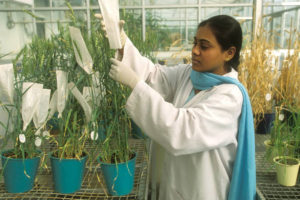 Gender equality has always been a core issue for the United Nations. Gender equality and the empowerment of women and girls will make a crucial contribution not only to economic development of the world, but to progress across all the goals and targets of the 2030 Agenda for Sustainable Development as well.
Gender equality has always been a core issue for the United Nations. Gender equality and the empowerment of women and girls will make a crucial contribution not only to economic development of the world, but to progress across all the goals and targets of the 2030 Agenda for Sustainable Development as well.
On 14 March 2011, the Commission on the Status of Women adopted a report at its fifty-fifth session, with agreed conclusions on access and participation of women and girls in education, training and science and technology, and for the promotion of women’s equal access to full employment and decent work. On 20 December 2013, the General Assembly adopted a resolution on science, technology and innovation for development, in which it recognized that full and equal access to and participation in science, technology and innovation for women and girls of all ages is imperative for achieving gender equality and the empowerment of women and girls.
On 15 December 2015, the General Assembly adopted the resolution, deciding to proclaim 11 February of each year of the International Day of Women and Girls in Science. The United Nations invites all Member States, all organizations and bodies of the United Nations system and other international and regional organizations, the private sector and academia, as well as civil society, including non-governmental organizations and individuals, to observe the International Day of Women and Girls in Science in an appropriate manner, including through education and public awareness-raising activities, in order to promote the full and equal participation of women and girls in education, training, employment and decision-making processes in the sciences, eliminate all discrimination against women, including in the field of education and employment, and overcome legal, economic, social and cultural barriers thereto by, inter alia, encouraging the development of science education policies and programming, including school curricula, as appropriate, to encourage greater participation of women and girls, promote career development for women in science and recognize the achievements of women in science.















